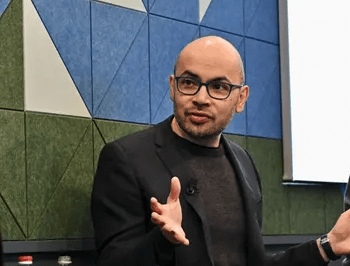Given the remarkable influence of his leadership and research, Demis Hassabis’s estimated net worth, which ranges from $523 to $653 million, seems very low. He has been instrumental in transforming science and technology as the CEO and co-founder of Google DeepMind. Although Google’s 2014 acquisition of DeepMind for over £400 million was a watershed, it was simply the beginning of a career that would lead to previously unthinkable advances.

His joint Nobel Prize in Chemistry with John Jumper has brought attention to the ways in which artificial intelligence can transcend fields that were previously limited to biology and medicine. Their invention, AlphaFold, provided insights at a speed remarkably like to a supercomputer rewriting the beat of scientific research by accurately predicting protein structures, saving years of laboratory work. The prestige of Hassabis as well as humanity’s ability to resolve some of its most enduring medical conundrums benefited greatly from this acknowledgment.
Demis Hassabis – Bio Data and Professional Information
| Detail | Information |
|---|---|
| Full Name | Demis Hassabis |
| Date of Birth | July 27, 1976 (Age 49 in 2025) |
| Nationality | British |
| Profession | AI Researcher, Neuroscientist, Entrepreneur |
| Known For | Co-founder and CEO of Google DeepMind |
| Major Achievements | Nobel Prize in Chemistry (2024); AlphaGo; AlphaFold |
| Estimated Net Worth | $523–653 million (2025) |
| Early Career | Game designer on Theme Park; Founder of Elixir Studios |
| Current Residence | North London, United Kingdom |
| Social Media | Twitter: @demishassabis |
| Authentic Resource |
He accumulates his wealth in three stages. The first was the acquisition of Google, which guaranteed credibility and financial security. Second, his continued position as CEO of DeepMind guarantees steady profits from one of the world’s most cutting-edge research facilities. Lastly, his early game endeavors, when he founded Elixir Studios and co-designed Theme Park, gave him the creative training that made his subsequent inventions so adaptable. Together, these streams have proven incredibly effective, guaranteeing that his fortune would endure despite the fluctuations in tech values.
There is a noticeable disparity between his numbers and those of Silicon Valley titans. Hassabis’ wealth is still less than $1 billion, but Elon Musk and Mark Zuckerberg’s are measured in tens of billions. However, influence cannot be boiled down to financial statements. Hassabis has made more revolutionary scientific discoveries than most entrepreneurs, and if DeepMind’s research results in scalable industrial and medical goods, his career path might accelerate considerably.
Hassabis is unique in part because of the harmony between science and creativity. He gained knowledge of systems, feedback, and user engagement from his work in games, which he used to AI in a uniquely creative way. He streamlined operations and freed up his researchers to pursue ambitious discoveries without temporary commercial distractions by working with Google to integrate his firm into a structure that was both liberating and supportive. From AlphaGo’s stunning triumph over Go champions to AlphaFold’s incredible success, the outcome has been a string of discoveries that feel remarkably evident in their global relevance.
It hasn’t always been easy. Serious privacy issues were raised in 2016 by a collaboration between DeepMind and the National Health Service of the United Kingdom. Although the goals were admirable, the way they were carried out demonstrated how innovation and ethics are increasingly coming together. Public trust was temporarily severely damaged by the scandal, but Hassabis’s future openness and reforms were noticeably better, demonstrating that leaders can adjust to criticism. He has lately issued a warning about the dangers of artificial general intelligence, drawing parallels between the necessity of immediate supervision and the lessons learned from nuclear technology in the past. He made a very effective use of his power by calling for a worldwide safety group, highlighting both ambition and accountability.
The wider societal interest in AI pioneers is also reflected in Hassabis’s wealth. Though his Nobel Prize puts him in rarer company, he now stands next to people like Yoshua Bengio, Sam Altman, and Geoffrey Hinton. Because of the recognition, he is now a public intellectual whose viewpoint is just as significant in science as it is in technology, moving him outside of the corporate world. His capacity to connect various fields has been especially helpful in influencing how cultures view AI—not just as a for-profit product, but as a tool that has the potential to revolutionize human knowledge.
His legacy surpasses his wealth, as seen by the societal influence of his undertakings. For instance, AlphaFold has greatly lowered barriers for researchers globally by developing a publicly accessible database of almost every protein known to science. In stark contrast to the secrecy typically associated with IT creation, this act of transparency was incredibly effective in democratizing discovery. It served as a reminder that advancement is more significant when it is shared, and it established Hassabis as a custodian of scientific cooperation in addition to being an entrepreneur.
